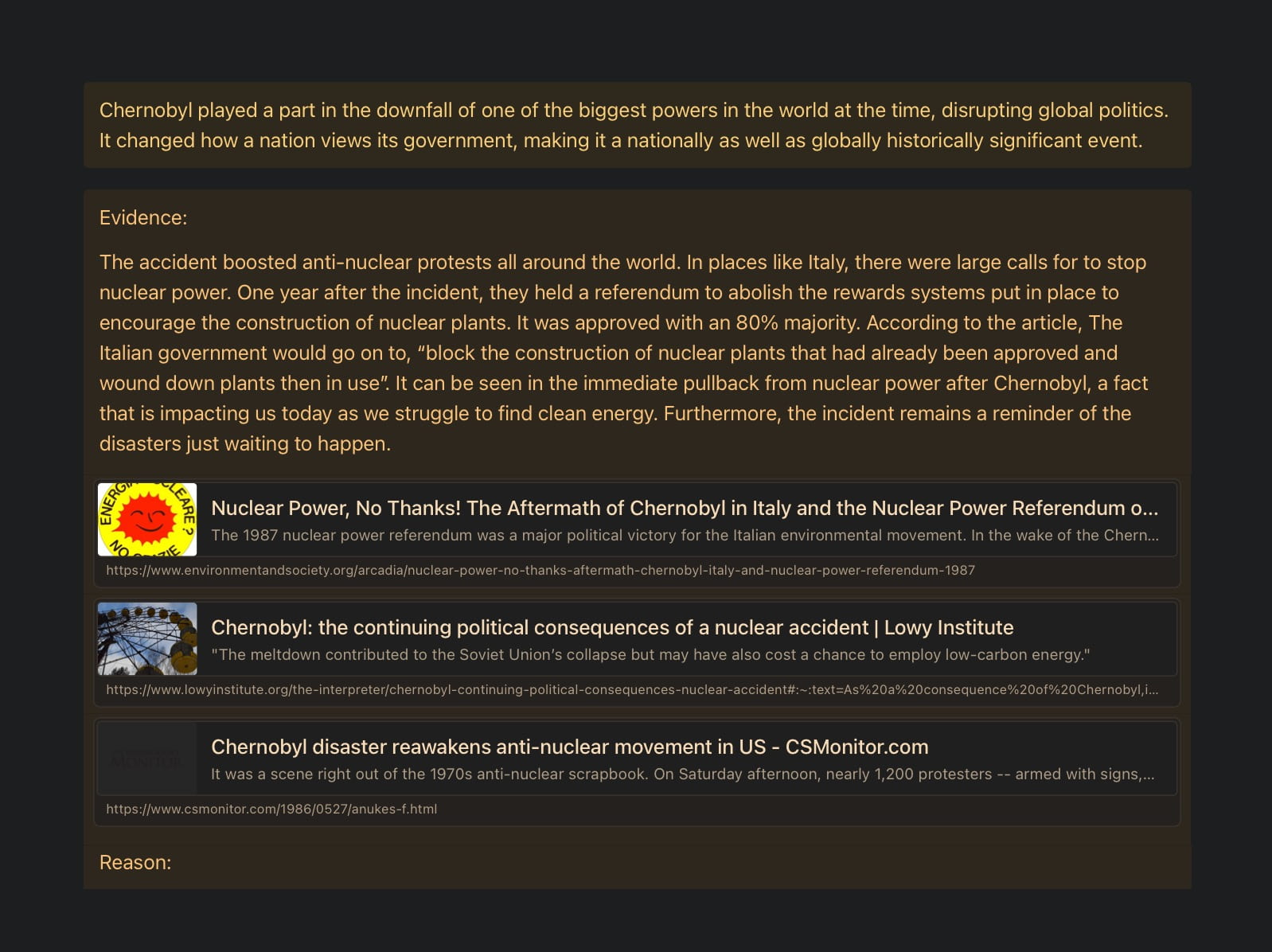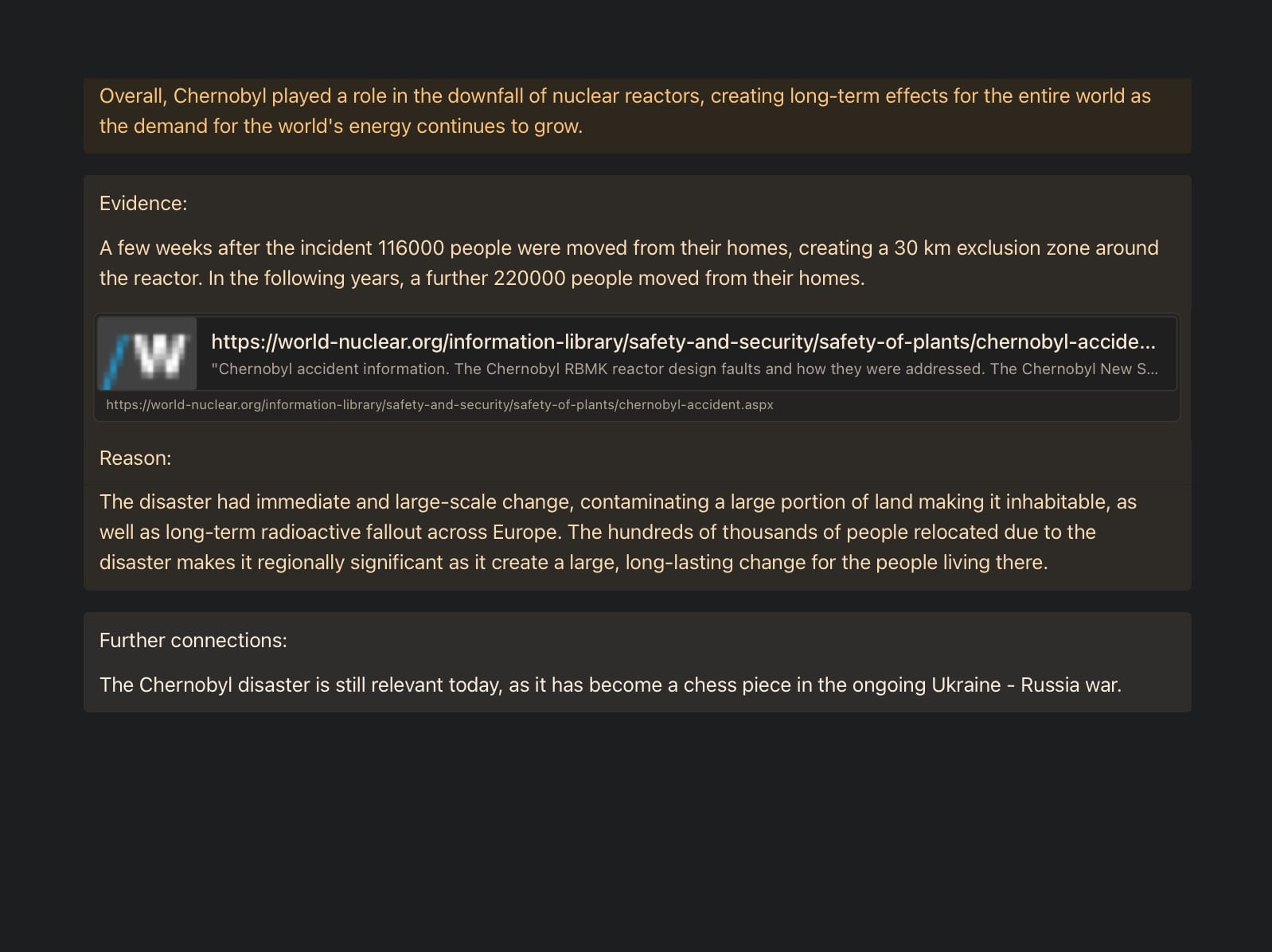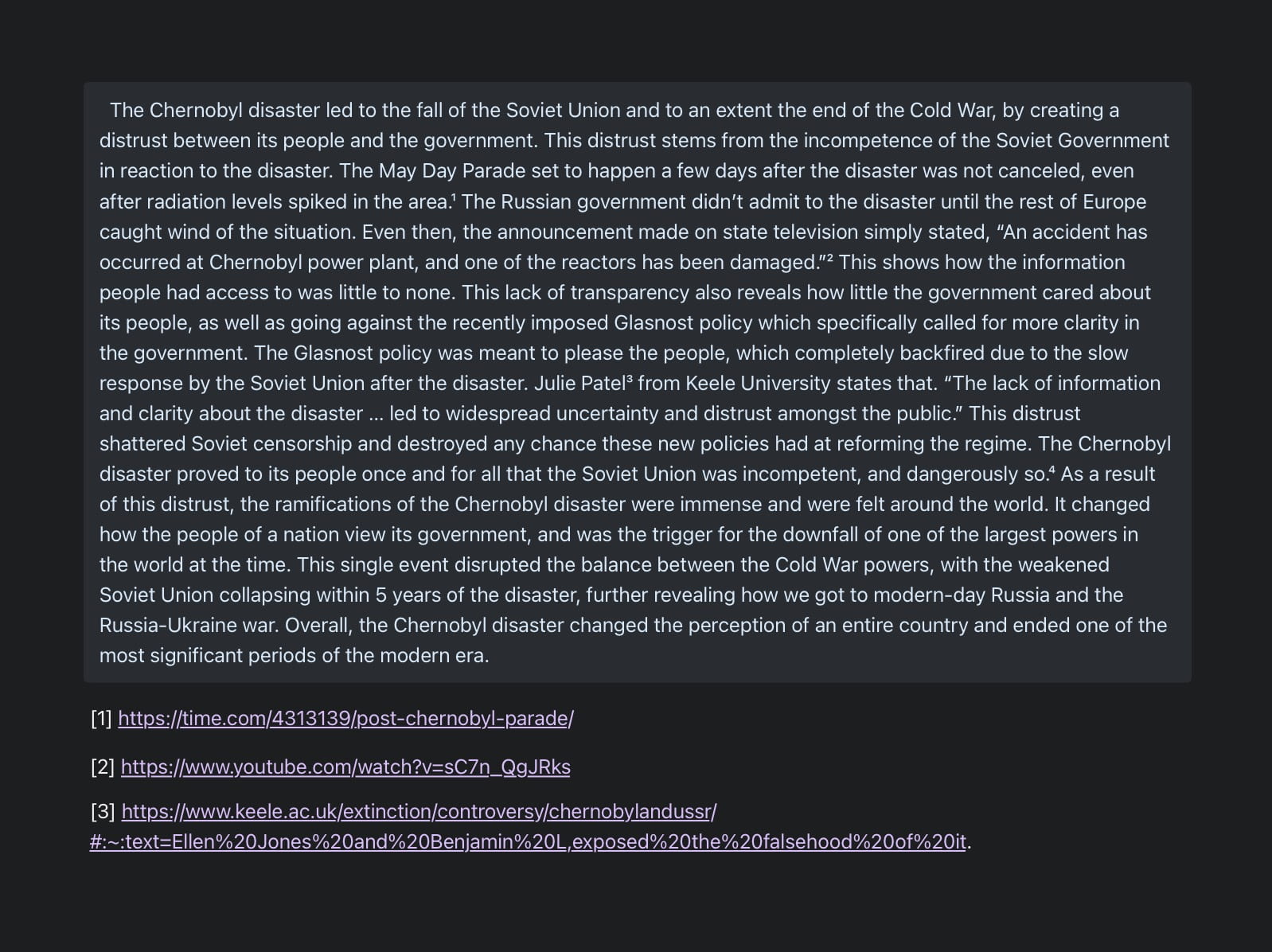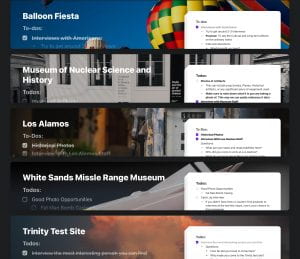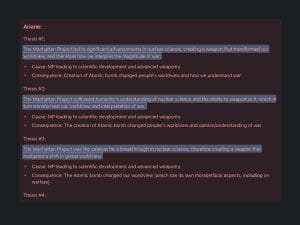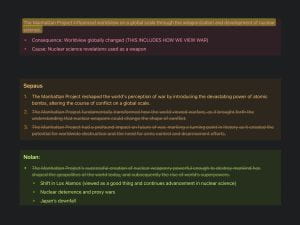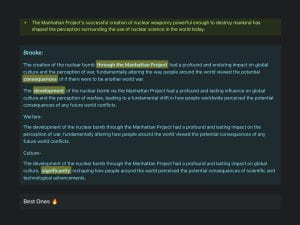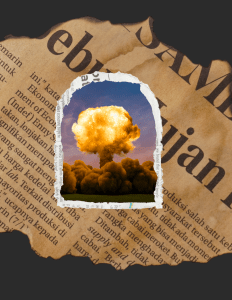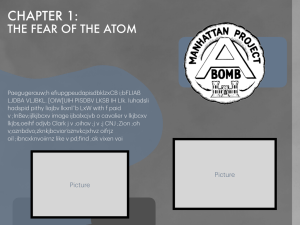Hey! Remember that time where we managed to split an atom in half, then with that science created a bomb so powerful that it could end the world? …no? Well it was one of the most historically significant events ever to happen, so either you’re living under a rock or it’s not actually historically significant and this entire project was a lie.
Welcome to the Manhattan Project project, the project where we analyze the historical significance of the Manhattan project. This project’s final creation is a group interactive book that you can read below!
Now you might be asking, how did we manage to create this book? Well that’s a long story, so let’s not start at the beginning because that would take too long. Instead I’ll start with my first major piece of writing, where we had to justify any person, place, or event as being historically significant. In PLP we’ve touched on historical significance before, but I still found it quite a complex topic to decipher.
A historical significant event boils down to three main criteria:
1: Have resulted in great change
2: Been prominent at the time
3: Be revealing of larger trends and stories
In regards to this criteria, I chose the Chernobyl disaster as my event to talk about, as it’s a very recognized event, which compelled me to believe its historical significance. My first shot at this wasn’t a total failure, as I thought I had the start of some pretty good ideas. The problem with this piece was that the scope was too large, and the piece didn’t have a strong claim to hold everything together. For my original piece I boiled my event down to three main reasons why the event was historically significant, when in reality focusing on one of those reasons would have been stronger. Thankfully I had the option to revise, resulting in this final piece of work.
While writing this piece, I also noticed how many different rules and conventions that I’m still struggling with when it comes to formal writing. Things like how to properly cite quotes, or how to structure my thoughts to make the writing as strong as possible, are still aspects of writing that I find quite challenging. A lot of these conventions I tend to forget overtime, so familiarizing myself with the ins-and-outs of persuasive formal writing is becoming a much needed goal for me.
Now onto the book. For this book we were put into groups of 6, of which 2 would go on the field study to New Mexico to be our reporters from the actual Los Alamos site.
My group members were:
The rest of us divided up the roles, and started work on the creation of what would become “The Fallout”.
My main role was the DRI, otherwise know as the Directly responsible individual. It was my job to organize, communicate, and keep everybody in our group on track. In terms of communication, there is still a lot to improve on. Being the DRI of this project, communication was a skill I really wanted to focus on. You can see my attempts at communication and team management with our to-do list and occasional announcement, but there were still quite a few hiccups along the way.
These hiccups were due to a simple lack of clarity as to who was doing what, and what needed to be done. This happened because while I knew what everybody was doing, I occasionally failed to communicate that to the entire group, creating confusion and wasted work. What also contributed to this were my rather open ended assignments. I left these open ended for two reasons. Firstly I wanted each person to have at least some freedom when it came to the project, with the ability to put their own personal touch on their work. Secondly, it’s really hard to give concise assignments when you don’t know what you want the final product to look like. This leads me into the main problem of our book, which was that it had no claim or identity.
When it came to the first draft of our completed book, we realized we didn’t have a central claim, and ended up talking about many different things without connecting them (just like our first historical significance responses). Looking back I think there were a few reasons why this ended up happening, when we had just been lectured on focusing on a single claim.
1: It was a big question. The Manhattan Project affected a lot of people, places, different aspects of the world. As a result, we started research on the entire project without first examining the big picture.
2: It was a group project with many different people and ideas. Everybody has a slightly different idea of how the project changed our world. When in comes to group projects, I’ve been trying to improve at letting other people’s ideas have bigger influence in the project. While I think I did a really good job at this skill, it also meant that boiling all our ideas into a central one was a very messy and time consuming project, especially at the start of a project.
3: We just forgot. I’m not sure if this is common with others, but personally I find it really hard to stay focused on the central questions when there are so many interesting nuggets of information and rabbit holes to dive down.
I believe it can be a good thing to work backwards on projects, as it allows you to explore and experiment before you really dial in your idea. Regardless, even if working backwards can produce high quality work, we waited too long before doing so, creating more revisions and unnecessary work that had to be scraped.
While my main job was to make sure everybody had something to do, that didn’t mean I didn’t do anything myself. Since I knew what everyone was doing, it put me in a prime position to clean up what still needed to be done. This resulted in me working on pretty much every aspect of the book, from the design, layout, videos, animations and the writing.
 When it came to the writing, I put the greatest amount of work into the last few chapters. These chapters went through the most amount of revision compared to the rest of the book, and I’m quite proud of the improvements made to them. I don’t think they are perfect, but they’ve come a long way since the first draft, and are a really good example of using group revisions.
When it came to the writing, I put the greatest amount of work into the last few chapters. These chapters went through the most amount of revision compared to the rest of the book, and I’m quite proud of the improvements made to them. I don’t think they are perfect, but they’ve come a long way since the first draft, and are a really good example of using group revisions.
Finally, after the completion of the book we did one last written assessment, where we took a look at a speech Oppenhiemer did to his fellow scientists a few months after the bomb. Once again there are a lot of things that could be improved with my writing, but I’m actually quite proud of this piece. Writing under time pressure was a real weakness last year, and while it still needs some improving, I believe I’m on the right track.
Overall there was a lot to learn from this project. Managing a team taught me a lot between the balance between being authoritative and giving space for work. I learned that communication is still a big hurdle that I need to overcome, but I’m getting better at managing the needs of everybody in the group. As for my writing, it’s steadily getting better, but there are still many techniques and conventions especially in formal writing that I need more exposure to before I really see improvement.
As always I hope you enjoyed the book and cheers to another day without a nuclear bomb starting WW3
See you next time,
Nolan💣

